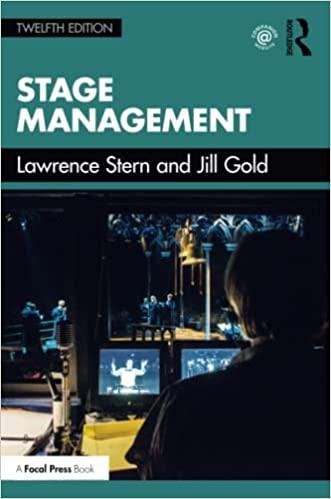Question
Case Comparison: Ford vs. GM Instructions : Review the two case studies on the automobile industry (Ford & GM) and answer the questions to the
Case Comparison: Ford vs. GM
Instructions: Review the two case studies on the automobile industry (Ford & GM) and answer the questions to the best of your ability. Be concise and avoid redundancies, each question was considered. If your answer feels redundant, re-read the question as you might not be correctly addressing the prompt. Lastly, do not miss a question because you do not understand what is being asked.
Ford
Vision:
We are here for one purpose, to help build a better world, where every person is free to move and pursue their dreams.
Mission:
People working together as a lean, global enterprise to make peoples lives better through automotive and mobility leadership.
Core Values:
Better lives, stronger communities, healthier planet.
General Motors
Vision:
Our vision is a world with zero crashes, zero emissions and zero congestion.
Mission:
Our goal is to deliver world-class customer experiences at every touchpoint and do so on a foundation of trust and transparency.
Core Values:
Inclusive, customer-oriented, innovative, forward thinking, united (one team), collaborative, responsible, and integrity.
Vision/Mission/Strategic Objectives
- Compare/contrast the vision and mission of these two companies. Do you think one is more effective than the other? Why or why not? (3 points)
- What is the purpose of the vision statement? What is the purpose of a mission statement? (2 points)
Analysis
Reflect on the key forces in the general and industry environments that affect the U.S. auto industry.
- Conduct a general PESTEL Analysis for GM and Ford. Then, reflect on any general factors that might be different between these two firms. (8 points)
- Conduct a Porters Five Forces for both GM and Ford. Do you perceive the forces being different for these two companies? Why or why not? (12 points)
- What internal resources and assets does Ford have that may give it a competitive advantage. Fill in the blanks below (also denoted with a *). (10 points)
| Value chain activity | How does Ford create value for the customer? |
| Primary: | |
| Inbound logistics (distribution facilities, material control systems, warehouse layouts) | Assumed adequate. |
| Operations (efficient work flow design, quality control systems) | *
|
| Outbound logistics (consolidation of goods, efficient scheduling, finished goods processing) | Assumed adequate. |
| Marketing and Sales (motivated sales people, innovative advertising & promotion, effective pricing, proper ID of customer segments & distribution channels) | * |
| Service (ability to solicit customer feedback & respond) | *
|
| Secondary (or support): | |
| Procurement (win-win relationships with suppliers, reduced dependence on single supplier) | * |
| Technology development (state of the art hardware & software, innovative culture & qualified personnel) | * |
| Human resource management (effective recruitment, incentive & retention mechanisms, culture) | * |
| General Administration (effective planning systems to establish goals & strategies, access to capital, effective top management communication, relationships with diverse stakeholders) | * |
Conclusion: Has Ford adequately created value across its value chain?
- Reflecting on a VRIO analysis for General Motors, list at least one tangible and one intangible resource, and explain whether it provides this company with a sustainable advantage. (Hint: Tangible: financial, physical, technology, organizational structure; Intangible: human (skills, competencies), innovation, reputation, organizational capabilities) (10 points)
Strategies
- What competitive strategy does General Motors use, and how might it position itself for future growth? Reflect on business (past and present) and corporate (related vs. unrelated) level strategies, in developing your answer. (8 points)
- How is Ford competing? Reflect on business level (two or more business segments/units). What strategies should Ford implement in the future? (8 points)
- What does stuck in the middle mean? Are Ford or GM stuck in the middle? If so, how should these companies proceed to develop a sustainable advantage? (4 points)
Step by Step Solution
There are 3 Steps involved in it
Step: 1

Get Instant Access to Expert-Tailored Solutions
See step-by-step solutions with expert insights and AI powered tools for academic success
Step: 2

Step: 3

Ace Your Homework with AI
Get the answers you need in no time with our AI-driven, step-by-step assistance
Get Started


